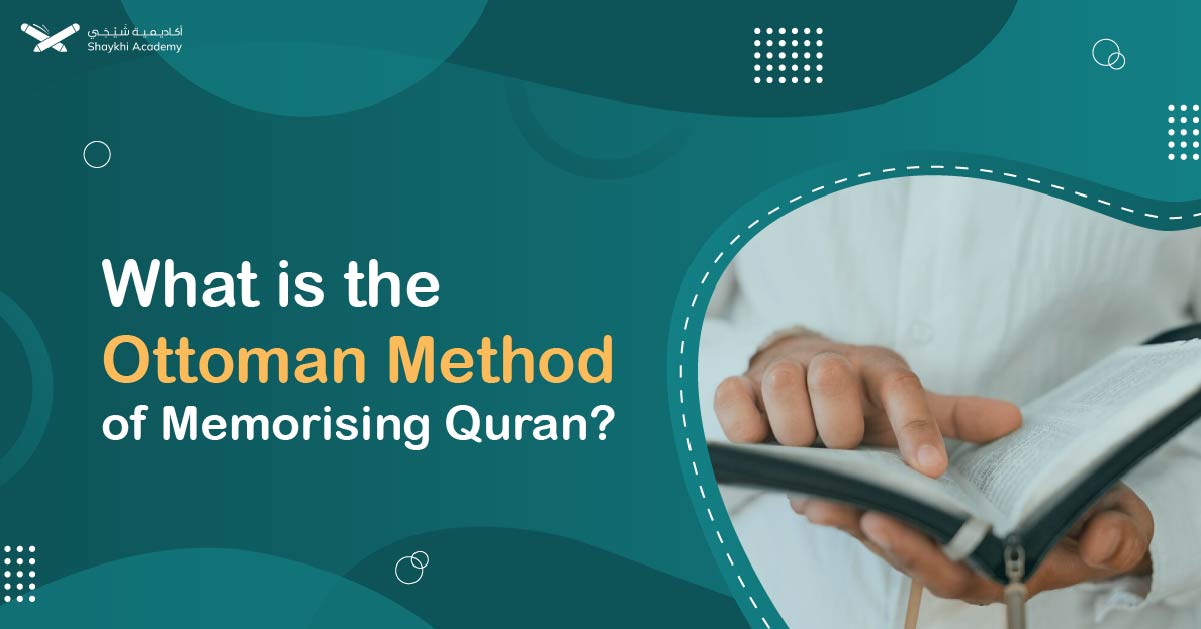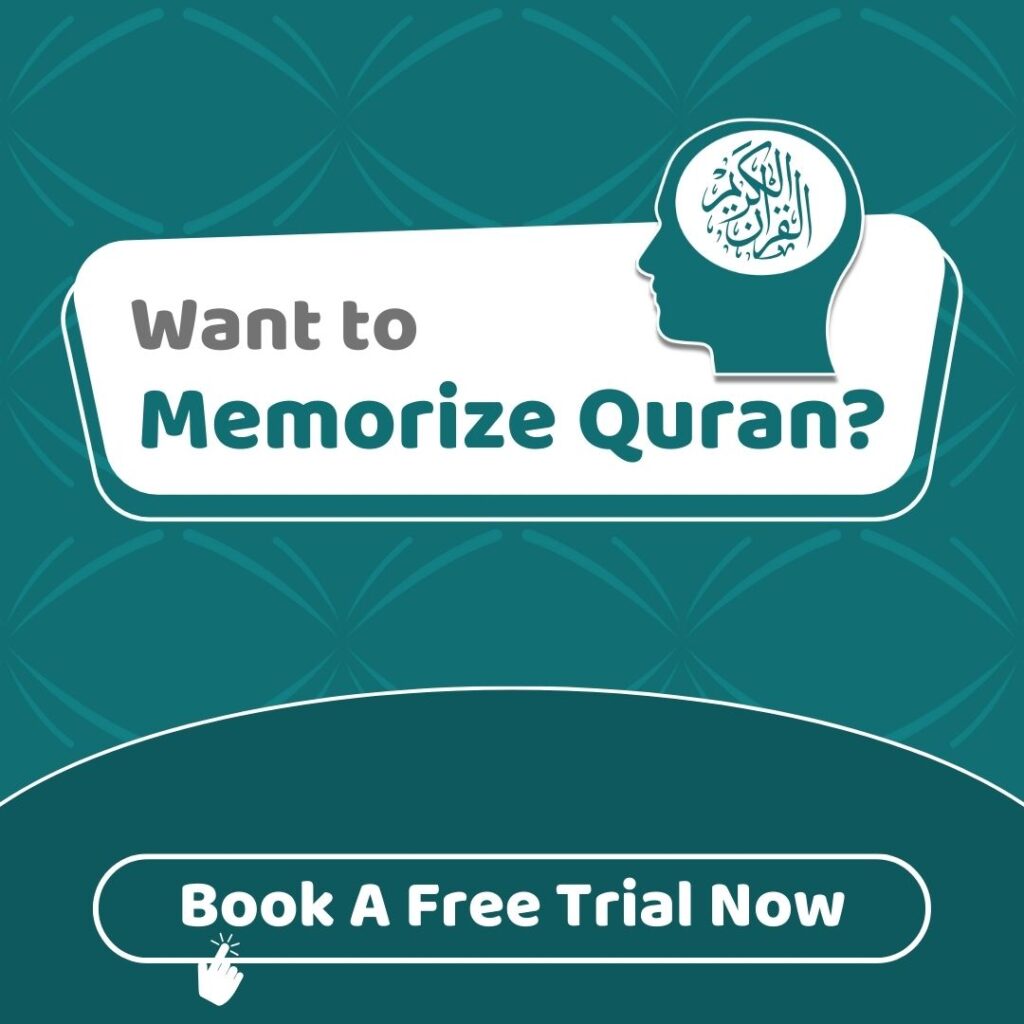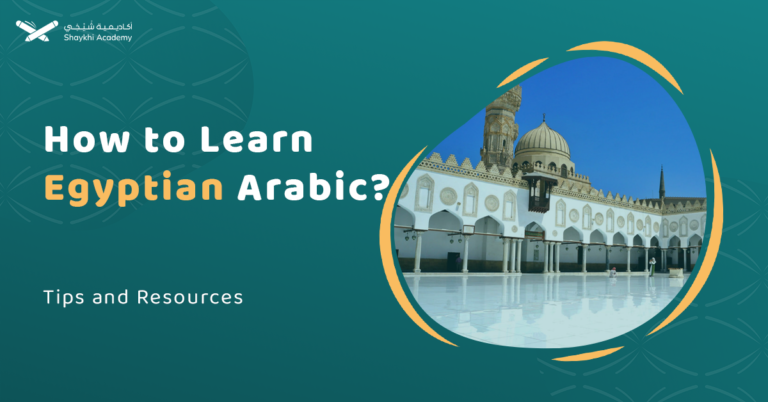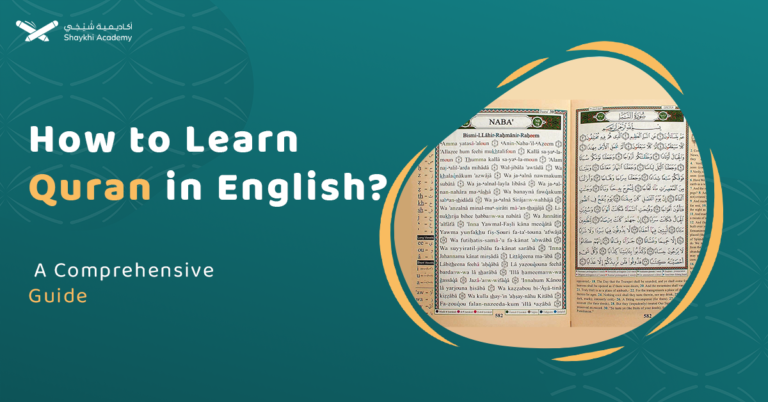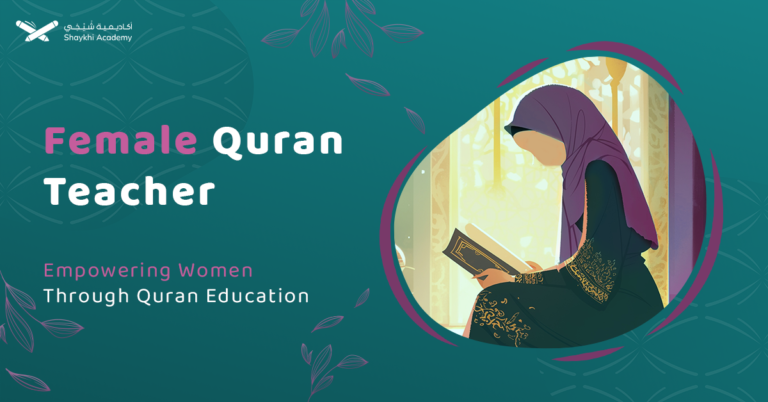The Ottoman method for memorizing the Quran uses recitation, repetition, and writing to commit verses to memory. Guided by a teacher, students start with small portions, perfecting their recitation and gradually memorizing larger sections. This traditional technique deepens spiritual connection and ensures lifelong retention of the Quran. Despite being time-consuming, it emphasizes discipline and understanding of the text.
Adopting a specific method in memorizing the Quran is crucial due to the profound nature of this task. A structured method provides a systematic approach that helps in organizing the memorization process, ensuring that all aspects of learning, such as repetition, recitation, and understanding, are covered adequately.
It also helps in setting clear goals and milestones, making the memorization journey more manageable and less overwhelming. Additionally, a methodical approach can improve retention and recall, as regular revision and practice are integral parts of most Quran memorization methods.
Ottoman Method of Memorizing the Quran:
There are various techniques for memorizing the Quran, reflecting the diverse ways people learn and retain information. One common approach involves regular recitation, repetition, and writing of verses.
One of the most traditional methods, known as the “Ottoman method,” involves memorizing the Quran through recitation, repetition, and writing. This method emphasizes the importance of reciting each verse multiple times to commit it to memory.
Understanding the meaning of the verses is also an effective technique, as it can deepen one’s connection to the text and aid in retention. Listening to recitations by skilled Quran reciters is also beneficial, as hearing the verses can reinforce memorization.
What Is the Ottoman Method?
The Ottoman method of memorizing the Quran, also known as the traditional method, has its origins in the early Islamic period. It is based on the practices of early Muslim scholars and teachers who developed systematic approaches to Quran memorization.
The method emphasizes oral transmission and recitation, with students repeating verses multiple times until they are committed to memory. Writing the verses down is also encouraged as a way to reinforce memorization.
Many Quranic memorization tutors such as the ones who teach the Hifz Quran classes at Shaykhi Academy use it to facilitate the process of memorization for their students.
What Is Memorisation Stacking?
The stacking method of Quran memorization is a more recent development, often associated with modern Quran memorization programs and apps.
It involves dividing the Quran into smaller, manageable sections or “stacks,” which are then memorized sequentially. Each stack typically consists of several verses or a short chapter (surah). Once a stack is memorized, it is reviewed regularly before moving on to the next stack.
Stages of the Ottoman Method of the Quran Memorization:
This method is often accompanied by a strong emphasis on discipline, dedication, and the guidance of a knowledgeable teacher (often called a “Sheikh” or “Hafiz”) to ensure the correct recitation and memorization of the Quran.
The Ottoman Method of Quran memorization typically involves several stages:
1. Learning to Read:
The first stage is learning to read the Quranic script (Arabic) and becoming proficient in its pronunciation (Tajweed). Therefore, prestigious academies; such as Shaykhi Academy offer Tajweed courses to help you be good at reading the Quran.
2. Memorization of Small Portions:
Students start by memorizing small portions of the Quran, such as individual verses or short chapters (surahs). They repeat these portions multiple times until they can recite them from memory accurately.
3. Revision and Recitation:
As students progress, they continue to revise previously memorized portions regularly. They also focus on perfecting their recitation, paying attention to Tajweed rules and proper pronunciation.
4. Memorization of Larger Portions:
As students become more proficient, they start memorizing larger portions of the Quran, such as longer chapters or groups of chapters. They continue to use repetition and regular revision to strengthen their memorization.
5. Review and Consolidation:
Throughout the memorization process, students regularly review and consolidate their memorization by reciting previously memorized portions alongside their current memorization.
6. Completion and Certification:
Once a student has memorized the entire Quran, they undergo a final review and evaluation to ensure they have memorized it accurately. Upon completion, they may receive a certification (Ijazah) from their teacher, authorizing them to teach the Quran to others.
How to Memorize the Quran Using the Ottoman Method?
There are many recommended plans and steps that aim to aid in memorizing the Quran through the Ottoman method. To memorize the Quran using the Ottoman method, follow these steps:
1. Seek Guidance:
Find a qualified Quran teacher (Sheikh or Hafiz) who can guide you through the memorization process. Their experience and knowledge will be invaluable in helping you memorize accurately and efficiently.
2. Learn the Basics:
Start by learning the Arabic alphabet and pronunciation (Tajweed). This step is crucial for correctly reciting the Quranic verses.
3. Begin Memorizing:
Start memorizing small portions of the Quran, such as individual verses or short chapters (surahs). Begin with easy sections to build your confidence and then gradually move on to more challenging parts.
4. Repeat and Recite:
Repeat the verses you are memorizing multiple times. Focus on correct pronunciation and recitation. Recite the verses in your daily prayers to reinforce memorization.
5. Write It Down:
Write down the verses you are memorizing. This helps reinforce your memory and allows you to visually see the verses.
6. Regular Revision:
Regularly revise the portions you have memorized to ensure you retain them. Daily revision is key to long-term memorization.
7. Memorize in Context:
Understand the meaning of the verses you are memorizing. This will not only help with memorization but also deepen your understanding of the Quran. Shaykhi Academy is among the academies that offer Tafsir courses to help you understand the verses you’re memorizing.
8. Consistency and Patience:
Memorizing the Quran is a long-term commitment that requires consistency and patience. Set realistic goals and stay dedicated to your memorization routine.
9. Seek Support:
Join a Quran memorization group or community for support and encouragement. Share your progress with others and seek advice from those who have already memorized the Quran.
10. Pray for Success:
Lastly, pray to Allah for success in your memorization efforts. Trust in His guidance and rely on His help throughout your memorization journey.
What Is the Golden Method of Memorizing the Quran?
The “Golden Method” of memorizing the Quran refers to a comprehensive and systematic approach that incorporates various techniques to enhance memorization.
While there isn’t a single universally recognized “Golden Method,” the term is often used to describe a method that combines the best practices from different memorization approaches. This may include elements from the Ottoman method, stacking method, and other effective techniques.
What Is the 1 30 Hifz Technique?
The 1 30 Hifz technique is a Quran memorization method that involves memorizing one verse from the Quran daily for 30 days. This technique is designed to be a gradual and consistent approach to Quran memorization, allowing individuals to slowly build up their memorization over time.
Difference with Noorani Qaida and Noor Al-Bayan:
The methods like the Ottoman method, stacking method, and the 1 30 Hifz technique are primarily focused on memorizing the Quranic text itself. They emphasize repetition, recitation, understanding, and regular revision of the Quranic verses.
On the other hand, Noorani Qaida and Noor al Bayan are educational tools or books used to teach beginners how to recite the Quran accurately. Many academies use them to educate kids such as Shaykhi Academy’s Noorani Qaida for kids.
They are not specifically designed for Quran memorization but rather for learning the basics of Arabic script, pronunciation (Tajweed), and the rules of Quranic recitation.
Noorani Qaida is a popular booklet used to teach beginners the Arabic alphabet, basic pronunciation rules, and how to recite the Quran with Tajweed. It includes exercises and lessons to help students gradually progress in their recitation skills.
Noor al Bayan, on the other hand, is an intermediate level book that builds on the foundation of Noorani Qaida. It focuses on improving Tajweed skills and teaches more advanced rules of Quranic recitation.
Pros and Cons of the Ottoman Method:
Normally, the Ottoman method has a number of pros and cons that would help people decide if it’s suitable for them or not.
The pros of the Ottoman method of memorizing the Quran include:
1- Emphasis on Repetition:
The method’s focus on repetition helps reinforce memorization and improves retention.
2- Traditional Approach:
The Ottoman method has been used for centuries and is based on the practices of early Islamic scholars, adding a sense of tradition and continuity to Quran memorization.
3- Oral Transmission:
The method emphasizes oral recitation, which is in line with the way the Quran was originally passed down and helps with correct pronunciation and Tajweed.
4- Strong Teacher-Student Relationship:
The method often involves a close relationship between the student and the teacher (Sheikh or Hafiz), providing personalized guidance and support.
5- Encourages Understanding:
While memorizing, students are encouraged to understand the meaning of the verses, which can deepen their connection to the Quran.
6- Spiritual Growth:
The method not only focuses on memorization but also aims to enhance the spiritual connection of the student with the Quran.
7- Builds Discipline:
Regular memorization and revision schedules help build discipline and consistency in students.
8- Community Support:
Many students memorize the Quran in groups or communities, providing a supportive environment and fostering a sense of belonging.
9- Cultural Significance:
The Ottoman method is deeply rooted in Islamic culture and history, making it a culturally significant practice for many Muslims.
10- Lifelong Skill:
Once memorized, the Quran stays with the student for life, providing spiritual guidance and blessings.
Cons:
The cons of the Ottoman method of memorizing the Quran include:
1- Time-Consuming:
Memorizing the Quran using the Ottoman method can be a long and time-consuming process, requiring years of dedication and effort.
2- Dependence on Teacher:
The method relies heavily on the guidance of a qualified teacher, which may not always be readily available.
3- Limited Understanding:
While understanding the meaning of the verses is encouraged, the focus on memorization may sometimes lead to limited understanding of the deeper meanings of the Quran.
4- Difficulty in Retention:
Some students may find it challenging to retain what they have memorized, especially if they do not revise regularly.
5- Lack of Flexibility:
The method’s structured approach may not suit everyone, as some students may prefer more flexible or personalized learning methods.
6- Potential for Burnout:
The long and intense nature of Quran memorization using this method may lead to burnout, especially for young students.
7- Requires Regular Revision:
To maintain what is memorized, regular revision is necessary, which can be demanding and time-consuming.
8- Cultural Barriers:
The method may be more suited to those from Islamic cultures where Quran memorization is deeply ingrained, making it less accessible to others.
9- Focus on Quantity over Quality:
Some critics argue that the method’s focus on memorizing large portions of the Quran may prioritize quantity over deep understanding or reflection.
10- Limited Application:
While memorizing the Quran is a noble endeavor, some critics suggest that the method may not always equip students with the practical skills needed for modern life.
Quran memorization with our comprehensive course tailored for Adults And Kids
Our Hifz Quran program at Shaykhi Academy is designed to guide you through various memorization methods, including the traditional Ottoman method and modern techniques like the stacking method.
Led by experienced instructors, you’ll receive personalized guidance and support to help you memorize the Quran with ease and proficiency. Join us today and embark on a fulfilling journey of spiritual growth and Quranic mastery.
Why Choose Shaykhi Academy?
- Connect with highly qualified native tutors.
- Flexible scheduling to suit your busy lifestyle.
- Affordable classes tailored for all levels.
- Accessible from anywhere around the globe.
Discover Our Range of Courses:
- Arabic Noorani Qaida: Lay a solid foundation for Quranic studies.
- Online Quran Classes for Kids: Engaging lessons for lifelong learning.
- Tajweed Rules for Kids: Learn to recite with confidence.
- Quran Hifz for Kids: Step-by-step guidance to memorize the Quran.
- Quran for Adults: Introduce yourself to Quran reading and Tajweed rules.
- Online Arabic Courses: Master the language of the Quran.
- Islamic Studies: A wide range of topics related to Islam, including theology, law, Quranic studies, Hadith.
Don’t Miss Out on Your Chance to Excel!
Whether you’re a beginner or seeking advanced knowledge, Shaykhi Academy can guide you! Book your free trial now and make Ramadan 2024 your Quranic turning point!
Register now to secure your spot!
Conclusion:
The Ottoman method of memorizing the Quran involves recitation, repetition, and writing to commit verses to memory. It originated in early Islamic practices and emphasizes oral transmission, with students repeating verses multiple times and writing them down to reinforce memorization.
Understanding the meaning of verses and listening to skilled reciters also aid retention. The method includes several stages, from learning to read Arabic and Tajweed, to memorizing small portions, revising regularly, and eventually completing and receiving certification.
Despite its time-consuming nature and reliance on a qualified teacher, it is valued for its traditional approach, emphasis on discipline, and potential for deepening spiritual connection.
Each of these methods offers unique benefits, and choosing the right one can greatly enhance the memorization experience, leading to a deeper understanding and connection with the Quran.
